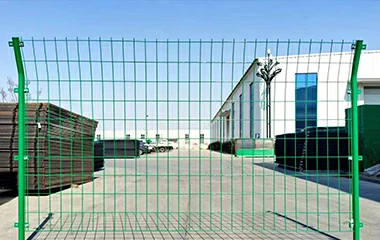 TEL:
+86-13102802206
TEL:
+86-13102802206
 Email:
fencenetting@china.com
Email:
fencenetting@china.com
 Language
Language
 TEL:
+86-13102802206
TEL:
+86-13102802206
 Email:
fencenetting@china.com
Email:
fencenetting@china.com
 Language
Language


Understanding Stainless Cable Ends A Comprehensive Guide
Stainless steel cable ends play a crucial role in various applications, ranging from marine rigging to architectural installations. These components serve as termination points for stainless steel cables, providing secure and reliable connections that are essential for the performance and longevity of the systems they are part of. In this article, we will explore the significance, types, and installation of stainless cable ends.
First and foremost, the importance of stainless cable ends cannot be underestimated. They provide a robust anchoring point for stainless steel cables, which are renowned for their strength and resistance to corrosion. This makes them particularly valuable in environments exposed to harsh weather conditions, such as coastal areas or industrial settings. By utilizing stainless steel for cable ends, users ensure that their installations remain durable and functional over time, minimizing the risks of wear and tear.
Stainless cable ends come in various types, each designed for specific applications. The most common types include ferrules, swage fittings, and end caps. Ferrules are cylindrical tubes that allow cables to be crimped or swaged, creating a strong connection. Swage fittings, on the other hand, are more intricate and often include additional components that enhance their load-bearing capabilities. End caps serve to protect the cable ends from environmental factors, such as water ingress and dirt, while providing a finished look to the installation.

Installation of stainless cable ends is a vital process that requires precision and attention to detail. The success of the connection often hinges on the quality of the crimping or swaging process. Using the right tools, such as a hydraulic crimper or a manual swaging tool, is essential for achieving a secure fit. Additionally, it is critical to select the appropriate size and type of cable end for the specific cable being used, ensuring compatibility and maximum strength.
Furthermore, proper maintenance of stainless cable ends can significantly extend their lifespan. Regular inspections for signs of wear, corrosion, or fatigue are advisable, particularly in high-stress environments. Keeping the cable ends clean and protected from environmental contaminants will help preserve their integrity and functionality, ultimately ensuring the safety and reliability of the overall installation.
In conclusion, stainless cable ends are vital components in a wide range of applications, providing secure connections that enhance the strength and durability of stainless steel cables. Understanding the various types and installation methods, along with regular maintenance, can help users optimize their systems for long-term performance. Whether in marine, construction, or industrial contexts, stainless cable ends are indispensable for achieving reliable results.